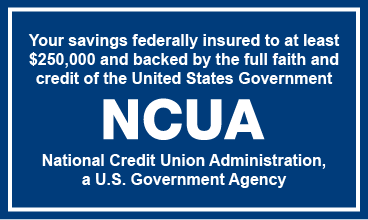Scams & Fraud: Understanding Risks and Avoiding Traps
June 1, 2023
Scams and fraud are more common than we think. It is important to stay up to date on trending scams to help protect yourself and stay ahead of fraud before it happens.
Understanding Risks Associated with Common Scams & Fraud:
Medicare/Health Insurance Scams:
- Attempts to ‘verify your identity’ asking you to providing your info to receive your Medicare card.
- Offers of ‘free medical supplies’ all you have to do is supply your SSN or Medicare Number verify coverage and pay for shipping.
- False claims you are entitled to a ‘refund’ and asking you to supply your bank account info.
Banking Scams:
- Overpayment – someone sends you a check, instructs you to deposit it, and send them money back. However the check is fake so when it comes back unpaid you will have to pay back the amount of the check and will lose any money you sent out.
- Automatic withdrawals – a scam company sets up automatic withdrawals from your bank account to qualify for a free trial or collect a prize.
- Phishing – you receive an illegitimate email that asks you to verify your bank account or debit card number.
Telephone Scams:
- Callers try to steal your money or personal information by making false promises such as opportunities to buy products, invest your money, or receive free product trials. They may also offer you money through grants/lotteries or call with threats of jail/lawsuits if you don’t pay them.
Internet Fraud:
- A very common scam, as emails and web browsers often have pop ups that simulate anti-virus software and fool you into downloading them, resulting in the scammer having access to all of your data. This is known as a tech support scam.
Social Media Scams:
- Scammers online will pose as your family/friend/colleague where they try to get you to sign up for something, send them money, or send you a fake check asking for funds back.
- Check scams – scammers reach out on social media and send you a fake check to help you or for a “job” – never accept an emailed check.
Wire Scams:
- A friend’s friend wants you to wire money to invest in a company and the company typically isn’t real.
- Scammer contacts you about an inheritance you are due, but you just need to send them money first for the inheritance tax in order to get the inheritance in full, and unfortunately there is no inheritance.
Friendly Fraud:
- Someone close to you that you are familiar with tries to steal your checks or use your debit card for purchases such as Doordash or Uber.
Romance Scam:
- Someone you meet online who talks to you over the course of many months to earn your trust then asks you for funds by wiring money to them or asking for your online banking login credentials to deposit fake checks, typically resulting in wire or check fraud.
Blackmail Scam:
- Similar to the romance scam, the other party will convince you to share personal information and then blackmail you into sending money via money transfer service such as Cash App or Facebook Pay in order to pay the ransom.
Person to Person Payment Scam:
- Scammers will ask you to send money to them through Zelle®/Venmo®/Cash App®, typically starting with a check deposit first and once it’s deposited they tell you they sent too much and you need to send the difference to them. Remember to only use these services to transfer to friends and family you know and trust and never to a stranger.
Avoiding Traps and Stopping Fraud Before It Happens:
• Avoid skimmers on ATM/gas stations by tugging on the hardware that you are inserting your card into (if it’s loose do not use it).
• Don’t open email forwarded items and links in your email.
• Always have anti-virus software on your computer and ask someone knowledgeable to help you.
• National Do Not Call Registry: donotcall.gov or 1-888-382-1222
• Prevent Robo/Automated Calls: nomorerobo.com
• Review your financial statements often to ensure all the transactions and charges are yours.
• Review your bills/medical bills and be sure they are legitimate.
• Review your credit report at least once a year to ensure no new accounts have been opened in your name that you did not authorize.
• Freeze or put a fraud alert on your credit reports to prevent identity thieves from opening
accounts/loans in your name – call all three reporting companies (Equifax, Experian, TransUnion) to get more information and see which option is best for you.
• Choose strong login credentials and change them periodically.
• Sign up for eAlerts, VISA alerts and fraud alerts on your debit card to keep track of spending and prevent fraud from the start.
• Don’t give your personal or financial information in response to a request you did not expect.
• Resist the urge to act immediately – anyone who pressures you to pay or give them information urgently is a scammer.
• Know how scammers tell you to pay – never pay someone who insists you pay with a gift card/money transfer service and never deposit a check and send money back to someone.
• Stop and talk to someone your trust – when in doubt reach out to a family member, a friend, a neighbor or your credit union and tell them what happened. Talking about it could help you realize a scam before you take action.
• Get ahead of fraud and protect yourself with a trustworthy service such as Kasasa Protect – with credit reporting/monitoring, full service identity restoration, lost wallet protection, dark web monitoring, email alerts and more!



